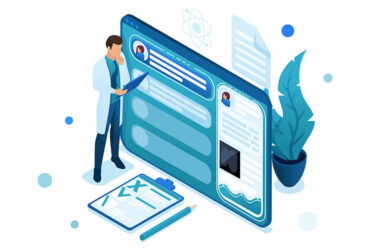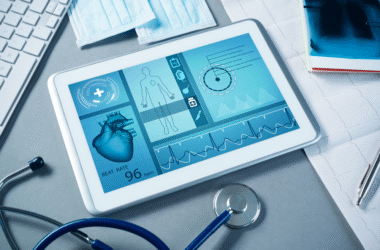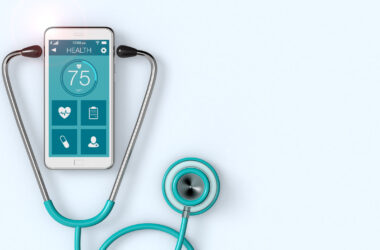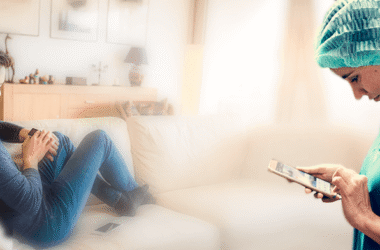In the global society, obesity constitutes a dangerous health problem. It also exposes one to a high probability of developing heart disease, diabetes, and certain cancers. The WHO reports indicate that more than 1 billion individuals in the world currently display obesity. This comprises 39 million children. With the increasing numbers, the increased support and long-term care are even more important.
Online solutions devoted to the obesity management are revolutionizing patient assistance. Such tools have more uses than weight measurement. They are supportive, check the progress, and provide easy treatment materials to doctors, coaches, and dietitians. The aim is not only to lose weight but to be healthy and make progress on the long term basis.
What Is Digital Obesity Care?
Digital obesity care applications are platforms (in the form of a web application or an app), where users can be helped to reach their goals in managing weight. These are applications that are run through the smartphones or computers. They also tend to refer the users to health specialists who take them through the process.
They may include:
- Meal and activity tracking
- One-on-one coaching
- Remote doctor visits
- Mental health tools
- Chat support or forums
- Automated reminders
These tools help users stay on track and make better choices over time.
Why Traditional Obesity Care Often Falls Short

Many people try diets, fitness routines, or even surgery, but most gain the weight back. One study by the CDC found that only 1 in 6 adults who have obesity can keep at least 10% of their weight off for one year. The main reasons include:
- Lack of regular follow-up
- No emotional support
- Poor access to experts
- Short-term plans
Digital platforms aim to fill these gaps. They give people care they can use at home. And they are there every day, not just at clinic visits.
How These Platforms Help Patients
1. Daily Support Builds Better Habits
A major benefit of digital care is daily support. Users get reminders to eat better, move more, and check in with their care teams. This helps them form lasting habits. For example, some apps send alerts to drink water or stop eating after a certain time.
Behavior experts say that building new habits takes time and practice. A 2020 study in the Journal of Medical Internet Research found that people who used app-based care were 23% more likely to stick with healthy habits after 6 months compared to those using paper logs or no tracking at all.
2. Mental Health Tools Make a Difference
Many people living with obesity also struggle with depression, anxiety, or low self-esteem. These issues can affect how they eat or move. Digital care tools now include mood check-ins, online therapy, and stress-reduction tips.
When mental health is part of care, results are better. One study showed that patients who received emotional support along with weight coaching lost twice as much weight in 12 months compared to those who had no mental health help.
3. Easier Access to Experts
Getting in to see a doctor or dietitian can be hard. People in rural areas or with busy schedules often miss out. With a digital platform, expert help is just a tap away. Users can book video calls, chat with a coach, or send updates to their care team.
This access helps patients ask questions in real time and get advice before problems grow. It also means fewer missed appointments and better follow-through.
4. Progress Is Easy to See
Many platforms use charts or photos to show progress over time. This helps people feel motivated. Instead of guessing if a plan is working, they can check their results. And if something is not working, the care team can change the plan quickly.
One platform called Noom reported that 64% of its users lost at least 5% of their body weight in 6 months. That kind of feedback keeps users going, especially when they can see the changes for themselves.
5. Peer Support Brings Encouragement
Some platforms offer support groups or forums where users can talk to others who are also working on weight loss. This support makes people feel less alone. It helps when someone else understands the same struggles.
Talking with others who have the same goal brings hope and keeps people engaged. A survey by the Obesity Action Coalition found that 79% of people felt more confident in their weight loss efforts after joining online support groups.
The Role of Personal Plans
Every person’s body and lifestyle are different. A plan that works for one person might not work for another. That is why these platforms often give plans based on age, health history, and goals.
For example, someone with diabetes may need to focus on blood sugar tracking. A person recovering from surgery might need support for movement. The plan should match the person, not the other way around.
Digital care tools adjust as the user’s needs change. If a user is losing interest or having trouble, the care team can shift the plan right away.
Challenges and How Platforms Are Fixing Them
Of course, digital care has its limits. Some people may not have internet access. Others may find it hard to use apps or stay active online. That is why many platforms are adding features like:
- Voice commands for those who cannot type
- Offline logging options
- Help lines for tech support
- Short videos to explain steps
They are also working with clinics to give a mix of in-person and online care. This way, users get the best of both.
The Future Looks Supportive
Digital obesity care is not about fast fixes. It is about steady support and real-life tools. By helping people build good habits, manage stress, and talk to experts, these platforms give people a better chance at lasting health.
And the data backs this up. According to a report by McKinsey & Company, digital health tools can increase patient engagement by 60%, which is a key part of weight management success.
Top of Form
Bottom of Form








